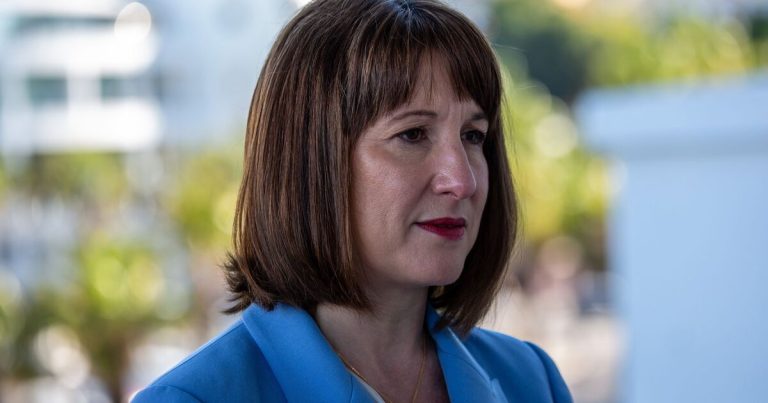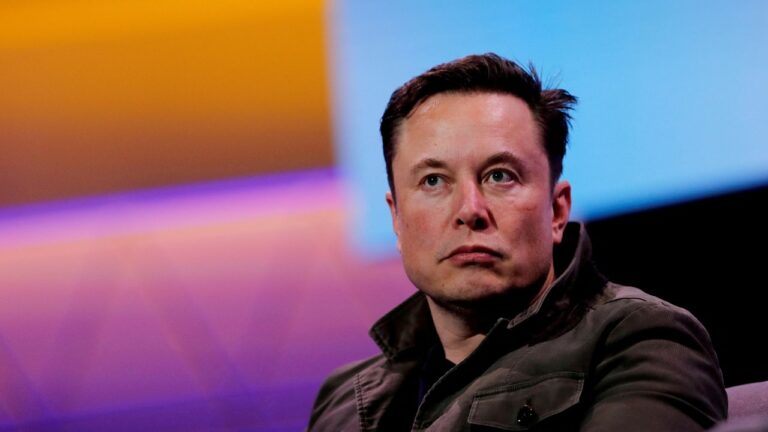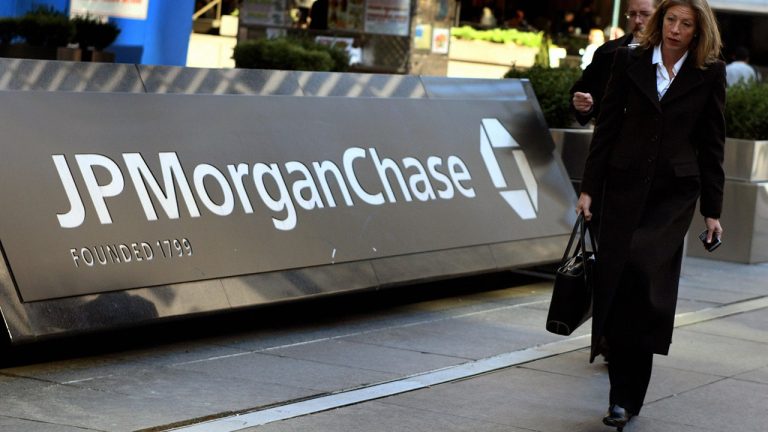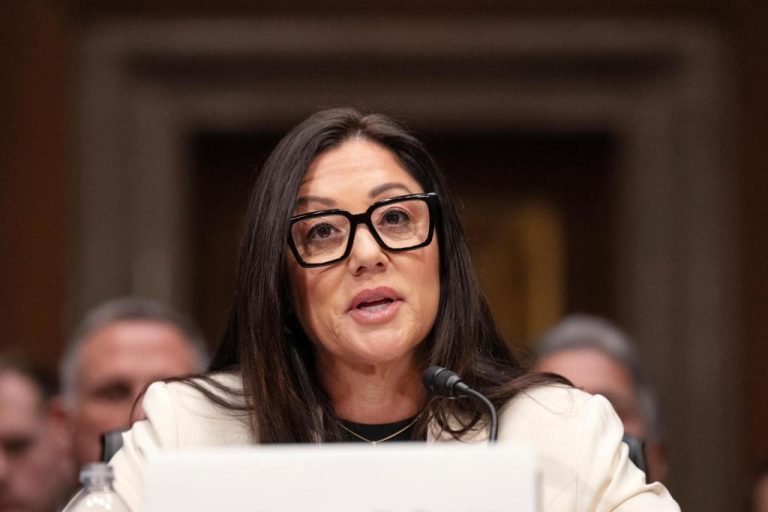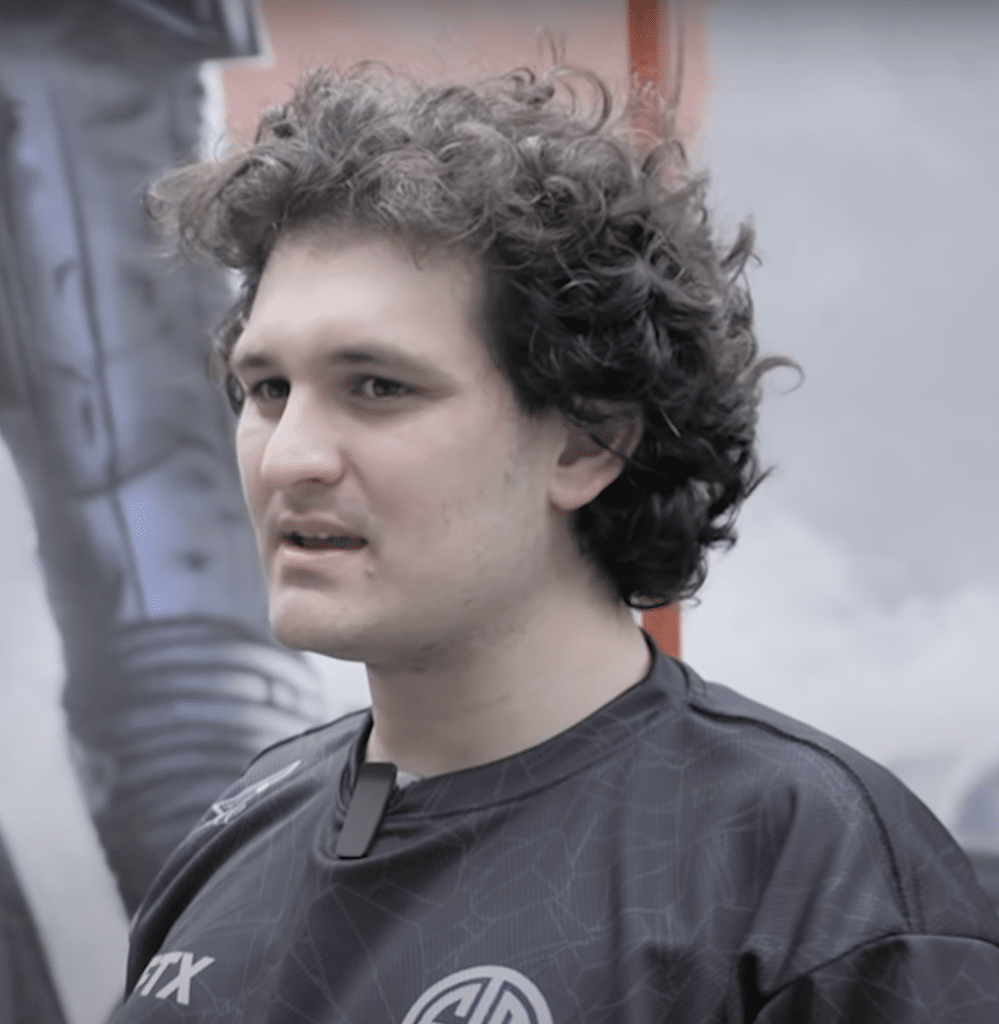
Posted March 28, 2024 at 6:30 pm EST.
March 27, 11:11 p.m. Unchained arrives at the Daniel Patrick Moynihan United States Courthouse at 500 Pearl Street in New York City.
March 28, 8:22 a.m. The defendant’s parents, Barbara Fried and Joseph Bankman, enter the Courthouse and proceed to the courtroom on the 26th floor.
8:50 a.m. Barbara Fried, seated near a window with her and covering her eyes with her hand, is visibly distraught.
9:09 a.m. The six aisles for observers – composed of the general public, the press, and attorneys – are already more than half full.
9:41 a.m. SBF enters the courtroom in a khaki-colored t-shirt and pants; the clinking of the chains around his ankles echoes through the room. The FTX founder’s hair is longer and his curls more pronounced than in previous court appearances. His parents are both frowning. His mother Barbara, her left arm wrapped around her husband, looks out the window.
9:45 a.m. Judge Kaplan enters the courtroom. Joseph Bankman, seated, bends over with his arms on his knees and his head down.
9:50 a.m. Judge Kaplan rejects the defendant’s argument that there “is no actual loss,” and the defense’s argument pre-sentencing that FTX customers will be paid in full during bankruptcy recovery proceedings. “The defendant’s assertion that FTX customers and creditors will be paid in full is misleading, it is logically flawed, it is speculative,” Kaplan said. “A thief who takes his loot to Las Vegas and successfully bets the stolen money is not entitled to a discount on the sentence by using his Las Vegas winnings to pay back all or part of what he stole if and when he gets caught.”
9:57 a.m. SBF plays with his thumbs while Bankman gazes out the window, his head in his hand, not looking at the judge.
10:00 a.m. Kaplan concludes that SBF obstructed justice, attempted witness tampering, and committed perjury. Kaplan identifies three perjury findings from SBF’s testimony: that SBF falsely testified that until the fall of 2022, he had no knowledge that Alameda Research had spent FTX customer deposits, that he first learned about Alameda’s $8 billion liability to FTX in Oct. 2022, and that he wasn’t aware that loan repayments in June 2022 would require Alameda to borrow more from FTX customers.
Read More: In First Testimony, Sam Bankman-Fried Is Apologetic, Forgetful, and Evasive
10:06 a.m. Sunil Kavuri, an FTX victim who flew from London on the behalf of 200 victims, takes to the podium, while the US Marshals stand behind Bankman-Fried, presumably in case they are needed to protect him from the FTX victim. Kuvari describes how he has been living the FTX nightmare every day since the exchange collapsed in 2022. He disputes the argument put forward by SBF’s legal team that all victims will be paid in full and highlights grievances against the FTX bankruptcy estate for selling assets such as SUI and SOL tokens shares of AI firm Anthropic below their market price.
10:13 a.m. Judge Kaplan says while he appreciates Kavuri’s words, his role as a judge is to deliver SBF’s sentencing and not what the FTX bankruptcy estate should or should not do.
10:15 a.m. Kavuri says three people have committed suicide as a result of the suffering caused by the collapse of FTX. SBF and his parents all have their heads down.
10:16 a.m. Judge Kaplan asks Kavuri to wrap up, and Adam Moskowitz, colead counsel for the multi-district litigation FTX, shares how SBF and his team have assisted the class-action counsel and asks Judge Kaplan to consider this in his decision. Moskowitz tells the court, “as the class action counsel, my job is to find the most recovery for the victims who’ve lost billions, and [SBF’s] help, as well as the help of the insiders, has been very helpful.”
10:21 a.m. SBF’s attorney Marc Mukasey pushes back against the prosecution’s comparison of SBF to “some truly vile defendants,” James Nicholson and Bernie Madoff, by arguing that SBF is not a financial serial killer who “looked widows in the eye and stole their life savings.”
10:25 a.m. Mukasey says Bankman-Fried doesn’t have any malice, only mathematics in his head as the defendant is just an “awkward math nerd,” who is vegan and “off-the-charts, mind-blowingly intelligent.” Moreover, SBF’s attorney says SBF “wrote in a journal that he doesn’t feel pleasure or happiness, that he feels an aching hole in his brain where happiness should be… The truth is, though, his own happiness has always been subordinated to the happiness of those less fortunate in the world.”
10:35 a.m. Barbara Fried’s eyes are red; her lips are quivering.
10:36 a.m. Mukasey adds any reasonable person on the street would say SBF is not as bad as Stefan Irving, a recidivism child sexual predator who only received 21 years of prison time. As SBF’s attorney describes SBF as a “brillant,” “complex,” and “gentle” person who has a “beautiful mind,” Barbara Fried is shaking and crying.
10:43 a.m. Bankman-Fried stands and speaks directly to Judge Kaplan through the microphone, with both parents frowning and looking directly at their son. He says, “I also don’t know that the most important thing here today is my emotional life or hypothetical future kids. It’s that we are standing here today and there are millions of people who haven’t been paid.”
Read More: SBF Trial, Day 6: Caroline Ellison Recalls ‘The Worst Week of My Life’
After naming other people who matter, including colleagues such as Natalie Tien, Gary Wang, Nishad Singh, Caroline Ellison, “and a lot of other people who probably don’t want me to say their names right now,” he says, “they all built something really beautiful … And then I threw all of that away. It haunts me every day. I made a series of bad decisions. They weren’t selfish decisions. They weren’t selfless decisions. They were bad decisions.”
Read more: Cooperating Witnesses in the SBF Trial May Get Little to No Prison Time
As his body sways left to right and and after he wipes his palm on his pants, SBF blames “my mismanagement,” and that Alameda was “more levered than it should have been.”
With his right leg shaking intensely and his arms crossed, Bankman-Fried says, “I was the CEO of FTX. I was its leader. That means that I was responsible for what happened to it.”
11:00 a.m. SBF says, “At the end of the day, my useful life is probably over. It has been over for a while now, from before my arrest.” He claims there are “plenty of assets” to pay back FTX customers in full at current market values. “There is billions more than is necessary. It has been true for the whole time. It’s true of customers. It’s true of lenders as well and investors,” Bankman-Fried said.
11:04 a.m. Prosecutor Nicolas Roos stands at the podium and emphasizes how the defendant stole $8 billion from customers, which was “not a bloodless financial loss on paper.”
Noting the emotional toll caused by the FTX collapse, Roos highlights three victims. For one, FTX collapsed the day before the birth of his daughter, casting a shadow over his family’s future. For a 23-year-old victim in Morocco, an eldest son who had to provide for his family because his father was handicapped, the exchange’s bankruptcy compromised his education and family security. Roos then told the story of a retired couple in their 60s whose savings had evaporated with the collapse of FTX and had to resume working.
Roos counters the defense by saying SBF did look into people’s eyes and take their money—via his presence on social media.
11:13 a.m. Roos argues SBF would commit crimes again, citing SBF’s cost-benefit philosophy, “the number of crimes he committed, the commission of criminality while on pretrial release, the efforts he took to rehabilitate and rebrand his image, [and how] his own writings reveal a plan to relaunch FTX or something similar.” Roos turned Mukasey’s line that SBF had no malice, only mathematics in his head, on its head by claiming that if the math worked out, Bankman-Fried would be willing to offend again.
Roos indicates that SBF in his plea earlier did not contain any recognition and responsibility of his wrongs. While SBF admitted mistakes, “What we did not hear is [SBF] accepting responsibility for lying, for stealing, or for fraud. He recognizes errors were made. He does not recognize, though, that they were because of wrongs he committed,” Roos said.
11:16 a.m. Roos then uses a quote from author Diana Henriques to compare Bankman-Fried to Bernie Madoff. “He is not inhumanely monstrous. He is monstrously human. He was greedy to use people’s money and advance his own ambition, arrogantly sure of his capacity to pull it off, smugly dismissive of the skeptics, the critics, the rule of law, and his victims.”
11:18 a.m. Judge Kaplan begins his comments, walking the courtroom through Bankman-Fried’s “exceptionally privileged background” attending the best private schools, being raised by loving parents, and being “extremely smart.” He says he accepts that Bankman-Fried is a high-achieving autistic person who is awkward in social interactions.
Citing Ellison’s testimony, Kaplan also notes that SBF “has been exceptionally ambitious and aware of his talents through his entire life, as far as I can see.”
Read more: Crypto Community Reacts to Sam Bankman-Fried’s 25-Year Sentence
11:28 a.m. Kaplan homes in on Bankman-Fried’s use of expected value—”you might say cost-benefit analysis, but that’s not their terminology”—as a philosophy for navigating the world. Kaplan specifically references Ellison’s testimony that SBF was “risk neutral” and comfortable with taking risk as long as the expected value is positive.
He mentions Ellison’s testimony that Bankman-Fried would flip a coin if heads would double the quality of life on Earth but tails meant the end of the world. For Kaplan, this coin flip serves as a “leitmotif” for this entire case.
Judge Kaplan says, “In the head of this mathematical wizard, his own counsel tells us, in substance, that he was viewing the cost of getting caught, discounted by probability or improbability, against the gain of getting away without getting caught, given the probabilities. That was the game. It started at least as early as Jane Street and it continued to the very end. It’s his nature.”
11:34 a.m. Judge Kaplan says while SBF admitted mistakes were made, he did not hear any remorse from the defendant for his crimes as SBF continues to blame others. As a result, Kaplan concludes that the possibility of SBF committing another crime is not a “trivial risk.”
11:42 a.m. Kaplan says the sentencing judgment must reflect the seriousness of the crime, and that this was a “serious crime.” At this point, Bankman-Fried, his entire defense team, and the two U.S. marshals stand up to hear Kaplan’s decision.
Read More: Where Is Sam Bankman-Fried Likely to Serve His Prison Term?
In the preamble giving his reasoning over the decision, Kaplan calls out “the enormous harm that [Bankman-Fried] did, the brazenness of his actions, his exceptional flexibility with the truth, his apparent lack of any real remorse, and the need to deter others engaging in comparable behavior.”
He also adds, “I did not think it a fruitful use of time to spell out every time I thought Mr. Bankman-Fried testified willfully and knowingly falsely at trial. … And when he wasn’t outright lying, he was often evasive, hairsplitting, dodging questions and trying to get the prosecutor to reword questions in ways that he could answer in ways he thought less harmful than a truthful answer to the question that was power would have been. I’ve been doing this job for close to 30 years. I’ve never seen a court performance like that.”
11:46 a.m. Judge Kaplan sentences Sam Bankman-Fried to 300 months, or 25 years, in prison. Joseph Bankman is bent over with Barbara Fried, both looking out the window.
11:54 a.m. Judge Kaplan leaves the room and shortly afterwards the defendant also leaves the room, the clinking of his ankle chains still echoing through the courtroom.


